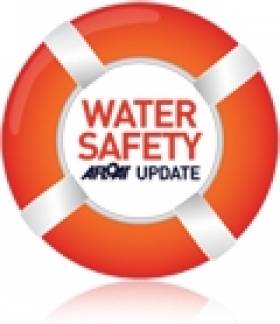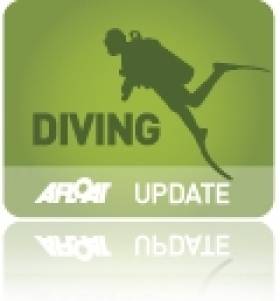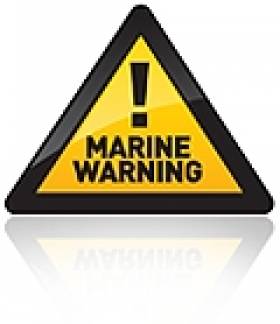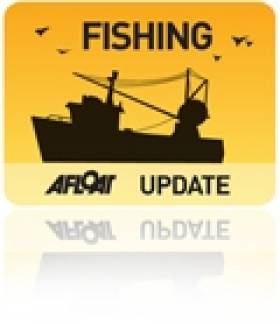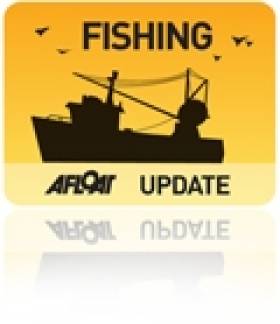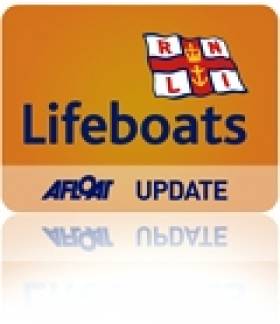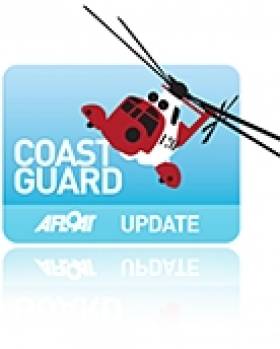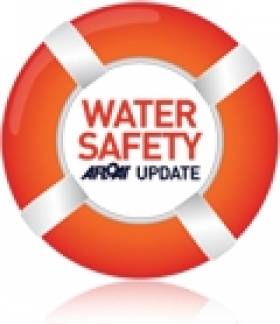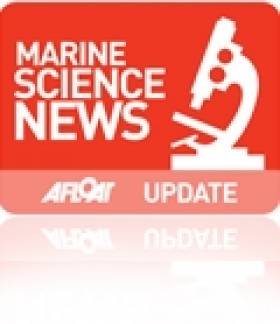Displaying items by tag: Safety
Radio Beacon Maker Learned Of Faults After Device Failure In Fishing Tragedy
#Safety - The factor of a malfunctioning radio beacon in the deaths of three fishermen in Tramore Bay this summer prompted the recent Marine Notice urging tests of such devices.
According to RTÉ News, the Australian manufacturer of the EPIRB devices in question was not aware of any problems until after it emerged that the beacon on the small fishing punt sailed by Paul, Kenny and Shane Bolger failed to emit a signal.
The bodies of the three men were recovered from the water in Tramore Bay just hours after they were reported missing on Wednesday 12 June.
The EPIRB - or Emergency Position Indication Radio Beacon - carried on the Bolger brothers' boat is one of the six classes identified in last week's Marine Notice (see appendix HERE).
All were manufactured between 2005 and 2010 by Australian film GME, which has since told RTÉ News that it lately learned of problems with its radio devices via "market-place feedback".
A malfunctioning microprocessor is thought to be to blame.
RTÉ News has more on the story HERE.
British And NI Divers Called To Take Part In RNLI Survey
#Diving - Divers across Britain and Northern Ireland are being called on to help the RNLI with research into participation and attitudes to safety in the sport by taking part in a new online survey.
The RNLI, in partnership with the British Diving Safety Group (BDSG), is asking divers and dive instructors in the UK to take 10 minutes to complete the online survey, which looks at their reasons for participating in diving, how often they take to the water, preferred methods and locations, experience and training, awareness of possible hazards and use of safety measures.
The findings will be used to help the RNLI and BDSG develop tailored and relevant safety messages for the diving community, to help make the sport even safer.
Last year alone, 314 diving incidents were reported to the British Sub-Aqua Club (BSAC). The survey, being undertaken by Substance on behalf of the RNLI, launched on Tuesday 27 August and will run for nine weeks, during which time anyone who dives in the UK – no matter how often or what level of experience – is invited to take part.
To supplement the online survey, face-to-face surveys will be conducted at dive sites, charter boat launch and departure points, and at Dive 2013, the NEC Dive Show in October. In-depth interviews and focus groups will also be conducted. Divers wishing to take part in these are encouraged to contact Substance via the survey website.
RNLI coastal safety manager Nick Fecher, who is running the project, explained the reasoning behind the research.
"Diving is a hugely popular sport but accidents do happen. A total of 314 diving incidents were reported to BSAC last year and the RNLI’s volunteer lifeboat crews have rescued 96 divers and saved 13 divers’ lives in the past five years," he said.
"By carrying out this research, we hope to understand more about how and why people dive, what they know about the risks and what safety measures they take. We’re hoping to hear from divers of all levels of experience, so we can then develop really targeted and relevant safety advice to help them enjoy their sport as safely as possible.
"Coastal safety is a key part of the RNLI’s remit of saving lives at sea – by offering important safety advice to people taking part in coastal activities like diving, we hope to prevent incidents from happening in the first place and, ultimately, save lives."
All who participate in the survey are offered the option of free entry into a prize draw, with the first prize of a DX dive computer, kindly donated by Suunto Diving UK, and a second prize of an Abyss 22 regulator, kindly donated by Mares. Winners will be chosen by Substance using a random number generator by 15 November.
Marine Notice No. 34 of 2013
For the attention of all Masters, Operators and Owners
Safety Management Systems – Passenger Ships
The Department of Transport, Tourism and Sport wishes to bring to the attention of all passenger ship operators a recent report published by the Marine Casualty Investigation Board into the marine casualty involving the passenger ship "MV Ceol na Farraige". The full report may be obtained from the website of the Marine Casualty Investigation Board at www.mcib.ie .
The report made a recommendation on safety management systems, reminding owners to carry out a risk assessment in accordance with the Domestic Safety Management Code. The Department of Transport, Tourism and Sport wishes to draw attention to the need for owners / operators to carry out a risk analysis in accordance with the Company Safety Policy Statement (Section 2.1) of the Domestic Safety Management Code. This should address all risks including open stairwells leading from the wheelhouse, and take any necessary precautions resulting from the analysis.
Although the code directly applies to cargo vessels over 500 GT and passenger ships operating exclusively in Irish domestic waters irrespective of their flag, its relevance is considered beneficial to vessel types other than the above.
For more information please refer to Regulation EU 336/2006, S.I. No. 60 of 2008 and
Marine Notices 2 , 8 and 41 of 2007.
Statutory Instruments may be purchased by mail order from Government Publications, Office of Public Works, 52 St. Stephen's Green, Dublin 2. Tel: 01-6476834. They are also available at: www.irishstatutebook.ie .
Director General,
Maritime Safety Directorate,
Department of Transport, Tourism and Sport,
Leeson Lane, Dublin 2, Ireland.
For any technical assistance in relation to this Marine Notice, please contact:
The Marine Survey Office, Leeson Lane, Dublin 2, tel: +353-(0)1-678 3400.
For general enquiries, please contact the Maritime Safety Policy Division, tel: +353-(0)1-678 3418.
Written enquiries concerning Marine Notices should be addressed to:
Maritime Safety Directorate, Department of Transport, Tourism and Sport, Leeson Lane, Dublin 2, Ireland.
email: [email protected] or visit us at: www.dttas.ie
#fishing – A key aspect of new state safety packages for fishermen unveiled today is the use of EPIRBS which are to be made mandatory overtime and included in revised Fishing Vessel Code of Practice.
Minister for Transport, Tourism and Sport, Leo Varadkar, TD, with responsibility for maritime safety regulation and emergency response, and Minister for Agriculture Food and Marine, Simon Coveney, TD, with responsibility for the fishing industry, jointly launched a multi-faceted, cross Departmental, Cross Agency safety initiative for the Irish Fishing Industry in Union Hall today.
Grant aid is being made available for float-free, automatically activated EPIRBs (electronic position indicating radio beacons) for fishing vessels of less than 15 metres. The scheme will be operated by Bord Iascaigh Mhara and cover 60% of the cost of equipment for smaller vessels under 12 metres, and 40% of the cost for larger vessels. This is the single most significant safety enhancement of the scheme announced today. The grants can be used to purchase new units or to retrofit or replace old, manually operated beacons.
Grants will also be provided for Personal Locator Beacons which will be made mandatory for vessels of 15 metres or less, and included in the Fishing Vessel Code of Practice.
The initiative is supported by both Departments and their respective agencies and features the following:-
– Provision of Vessel & personal locator beacons.
– A new enhanced Safety Equipment Grant Aid Scheme operated by BIM for the purchase of:
– Personal Locator Beacons (PLBs)
– Personal Locator Beacons integrated into Personal Flotation Devices (PFD/PLB's)
– Float Free – self activating Electronic Position Indicating Radio Beacons (EPIRBS)
– Auto Pilot Alarms
– Wireless engine cut offs
Revised Fishing vessel Code of practice to be tougher and amended to take account of lessons learnt from recent tragedies.
A New Marine Notice being drafted on use of lifejackets.
· The establishment of a high level working group on safety in the Irish fishing industry.
· A new National Maritime Safety and Emergency Response Strategy to be launched.
· An new enhanced Safety Training Course run by BIM on a five year cycle
Minister Coveney said; "This cross Departmental initiative launched here today is testament to this Governments commitment to improving safety in our fishing fleet. It is about learning from past tragedies, and saving lives in the future."
Minister Varadkar said: "It is appropriate that the launch of this important maritime safety initiative targeted at the fishing sector is taking place here in Union Hall. Those tragic events of January 2012 left a huge impact on the nation as a whole, and reminded the nation of the dangers of the sea. The first ever national maritime safety strategy announced today is about closing any gaps in services, preventing accidents at sea, and through consultation with stakeholders and the general public, striving to reach a situation where we have no fatalities at sea. The launch of BIM's scheme backed up with the changes to the Code of Practice and a continued commitment to regulation and compliance with safety standards will help to engrain a culture of 'safety-first' on the water."
Minister Coveney explained " I am making €800,000 available over the next three years to fund this scheme and aligned with the new excellent enhanced safety training course being rolled out by BIM will focus primarily though not exclusively on operators of small vessels."
Minister Coveney went on to say "I am also establishing a new high level working group on safety in the fishing industry, to look at all aspects of safety on fishing vessels and to report to Minister Varadkar and myself with recommendations before the end of the year. The new working group will be chaired by Mr John Leech current CEO of Irish Water Safety. Because a common thread of comment in recent times has been the need to pay particular attention on issues surrounding the number of small inshore boats that get into difficulty, I have charged the group with focussing to a large degree on this aspect."
Minister Varadkar said: "I firmly believe we can and must do more to prevent tragedies such as those we have seen in the recent past. The bottom line is that we can pass any law we like, but if it is not enforced and we do not have a culture of zero tolerance in regard to non-compliance, we will continue to lose loved ones at sea in the coming years."
To conclude Minister Coveney said: "I am confident that the combined effect of this multi-faceted approach with the full support of both Departments is a major step in the right direction and will achieve results. I know this issue is painful for those who have lost friends and loved ones at sea, however, I hope that they can gain some comfort from the knowledge that something concrete is now being done. The aim is to save lives, we have to see a culture change in our attitudes to safety, and we all have responsibilities in seeing this common held desire become a reality."
A third round of grants will be provided for auto-pilot alarm systems, and consideration is being given to making their use mandatory.
An ongoing safety and equipment training initiative will also be launched and kept under constant review. The new enhanced safety training course run by BIM will be a one day course to be taken by every fisherman every five years throughout their career, it will be a cornerstone of the ongoing safety initiative not only in the use of new equipment but also on bespoke safety procedures.
The first implementation of the new course will feature instruction on the grant aided Personal Locator Beacons, Integrated Personal Floatation devices with Personal Locator Beacons (PFD-PLBs) and auto-pilot alarms. Future courses will bring fishermen up to date on the latest developments in safety techniques, skills and processes.
Fishermen's Safety Package to be Announced in Union Hall
#fishing – The Minister for Agriculture, Food and the Marine Simon Coveney T.D. & The Minister for Transport, Tourism and Sport Leo Varadkar,TD willl launch an enhanced safety package for fishermen at the pier in Union Hall, Co Cork next Monday (July 8) at 12 noon.
RNLI Lifeboats Have Busy June Bank Holiday Weekend
#RNLI - It was a busy June bank holiday weekend around the country for RNLI lifeboats in West Cork, Mayo and the Midlands.
On Sunday afternoon, Baltimore RNLI assisted four people after their yacht got into difficulty a mile south of Mizen Head.
The 32ft yacht with four people on board had been propped by a pot buoy immobilising her in the water. The alarm was raised at 10.41am and lifeboat the Alan Massey was launched minutes later.
A local RIB, which had commenced towing, passed the tow to the lifeboat and the yacht was then taken to the safety of Crookhaven Pier.
This was the second call out this week for Baltimore RNLI. On Thursday last three men were rescued when their punt overturned near Horse Island.
Later on Sunday, Achill Island RNLI in Co Mayo brought a distressed fishing vessel with seven people on board to safety.
The volunteer lifeboat crew was requested to launch at 4.50pm to assist a small fishing vessel in the vicinity of Clew Bay and close to Clare Island. The vessel had encountered engine problems and was unable to return to port.
The boat and its crew of seven were subsequently towed safely to Curraun harbour by the Achill Island RNLI lifeboat.
Speaking after, Achill Island RNLI lifeboat operations manager Tom Honeyman said: "The presence of thick fog surrounding the vessel meant that great care was needed in the rescue and the fishing party of the vessel were delighted to return empty handed for a change."
Meanwhile in the Midlands, Lough Ree RNLI brought five people to safety in two call-outs over the weekend.
On Friday 31 May the volunteer crew was requested to launch around 5pm following a report that a cruiser had ran aground north of Quaker Island.
A local fisherman raised the alarm after spotting the cruiser on the rocks at the island located in the north end of Lough Ree raised the alarm.
The lifeboat crew managed to establish contact with the person on board the cruiser via mobile phone and he had confirmed that he had got lost and had ran aground. He reported that there was no water entering his boat. He was on his own but not injured.
The inshore lifeboat was launched and the crew was on scene at 5.30pm. It took the lifeboat 10 minutes to safely navigate its way through the rocky area to reach the casualty. The person on board the cruiser was taken to shore and arrangements were made for a specialist company to attend the scene to recover the cruiser.
Lough Ree RNLI was then launched on Sunday evening to assist a 26ft cruiser which had ran aground east of Green Island after sustaining engine failure.
The small cruiser with a family of four on board had lost engine power and had ran aground on the south east side of Lough Ree.
A crew launched the lifeboat at 8.40pm and arrived on scene 10 minutes later. After one of the lifeboat crew had carried out an assessment of the causality vessel, the decision was made to make an attempt to pull the vessel from the rocks, which the lifeboat was successfully able to complete.
Once the lifeboat had the vessel in deep water, a tow was set up and the casualty vessel was taken to Quigleys Marina in Athlone.
It marked the continuation of a dramatic week for the Lough Ree crew, after six were rescued from a sinking cruiser on the lough last Tuesday 28 May.
#Coastguard - The Irish Coast Guard has issued advice to the public for the June bank holiday weekend regarding safety on the water and when enjoying leisure activities on cliff paths and walks.
Bright and dry weather with sunny spells is forecast over the weekend with highest temperatures of 13-18 degrees. The current spell of good weather is forecasted to last over the weekend when traditionally many people take to the water and enjoy outdoor bank holiday activities.
Irish Coast Guard manager Declan Geoghegan said: “Warmer weather encourages everyone to enjoy the outdoors but we are appealing to the public to be aware of safety when on the water, enjoying our coastline and walking on cliffs and other areas.
"This summer, we began our 2013 safety awareness campaign in May and our campaign this year is aimed at holidaymakers, those engaged in water sports, people enjoying cliff walks or engaging in coastal activities throughout Ireland. We are also targeting walkers and climbers.
“In the last week alone, we have had at least three incidents with swimmers getting into difficulty around the country. Unfortunately one person lost their life.”
Throughout the summer (as at other times of the year), coastguard units throughout the Ireland will patrol our rivers, lakes, waterways and coastlines issuing safety advice and information to holidaymakers and tourists.
The following are general safety tips and advice from the Irish Coast Guard to help enjoy the water and coastal activities in your area this weekend and this bank holiday weekend and throughout the summer:
Swimming
Only swim at beaches and waterways that have lifeguards on duty and pay attention to the safety flags. Ask the lifeguard for advice about safety and water conditions and adhere to their instructions. Avoid using inflatable toys such as lilos and rubber rings on the water.
Cliff Walking
There is safety in numbers, so never be alone if possible. Let somebody know when and where you are going and what time you will be back. Stay well away from the cliff edge, both top and bottom. Don’t attempt to rescue people or pets if they fall over the edge. If assistance is required dial 999/112 and ask for the coastguard.
Watersports & Coastal Activities
Before going to sea check local weather conditions and tides in the area. Wear correctly maintained and fitting lifejackets that are suitable for the activity. Lifejackets are of no use unless they are worn. Ensure your craft is fit for purpose. Always advise someone as to where you are going and the time of your intended return. Do not overload the craft. If you are in difficulty or see someone in difficulty and requiring assistance dial 999/112 and ask for the coastguard.
For specific advice and information on any water and coastal activity visit www.safetyonthewater.ie.
#Safety - The deaths of a mother and daughter in Britain's Lake District have highlighted the need for awareness of the risk of carbon monoxide leaks on cruisers and other vessels with sleeping berths.
As The Guardian reports, 36-year-old Kelly Webster and her 10-year-old daughter Laura Thornton died in their sleep on board a moored motor cruiser in Lake Windermere over the Easter bank holiday.
The interim report into the incident by the UK's Marine Accident Investigation Branch (MAIB) released this week confirms that fumes from a jury-rigged generator exhaust spread into the cabin of the boat belonging to Webster's partner Matthew Eteson, who survived.
It was also pointed out that the boat's carbon monoxide sensor did not set off an alarm because it was not connected to a power supply.
The boat had been installed with a portable petrol-driven generator of the kind normally only intended for use in the open air.
"The use or permanent installation of these engines on boats, particularly in enclosed spaces or below decks, increases the risk of carbon monoxide poisoning," the report added.
Just a week after the tragedy, BBC News reported that a woman and two children were taken to hospital to be treated for suspected carbon monoxide poisoning after a similar incident on a boat on the same lake.
Following the latest news, Bord Gáis Networks has provided guidance for keeping aware of the dangers of fumes from gas or fuel-powered generators, heaters or cookers.
Boaters are urged to think of the appliances on their vessels and whether they burn fuel oil, gas, LPG, wood or coal, which all produce carbon monoxide by burning.
Carbon monoxide becomes a hazard when there is not enough air flow to burn the fuel properly - more likely in an enclosed space such as a boat cabin - so ventilation is very important.
Make sure all flues and exhaust outlets are clear and ventilated, and ensure any appliances used are suitable for boats and serviced annually by a qualified agent.
Boat-owners are reminded of the good practice of installing a carbon monoxide alarm, and to know the signs of carbon monoxide poisoning - which include headache and dizziness, leading to loss of judgement, nausea, possible convulsions and elevated heartbeat.
Irish Harbours Get €7.4m Funding for Remedial Works
#IrishHarbours - Funding of €7.4 million for urgent remedial works at six regional harbours has been announced by Minister for Transport, Tourism & Sport Leo Varadkar.
The funding will pay for repairs and safety works on essential harbour infrastructure, and is likely to benefit the local economy, promote leisure activities and support the fishing industry.
“This funding will allow essential works at these regional harbours on piers, walls and harbour structures," said the minister. "This work is necessary as part of their transfer from central Government to local authority control.
“Harbours play an important role in their communities in terms of fishing, cargo and leisure and play an increasingly important role in tourism and watersports."
Minister Varadkar added: "The large-scale safety or construction projects planned for Kinsale, and for Baltimore & Skibbereen Harbour this year will be able to go ahead thanks to this funding. Smaller scale projects at other harbours can also proceed, including essential works at Arklow Harbour.”
The funding has been allocated to the following harbours:
Arklow - €3,588,000
Baltimore & Skibbereen - €1,165,000
Bantry Bay - €100,000
Kinsale - €1,467,000
Tralee & Fenit - €750,000
Wexford - €329,500
The funding has been concentrated on remedial works to ensure that the harbours are in a fit condition during their transfer to local authority control.
Twelve of the 13 regional harbours have transferred to date, with 11 being taken over by local authorities, and one designated a fisheries harbour.
Live Online Updates From Irish Weather Buoy Network
#MarineInstitute - Keep track on the status of Ireland's coastal waters thanks to the Marine Institute's website, which features live updates from the Irish Marine Weather Buoy Network.
The network is a joint project designed to improve weather forecasts and safety at sea around Ireland. The buoy network provides vital data for weather forecasts, shipping bulletins, gale and swell warnings as well as data for general public information and research.
Data recorded by the six buoys dotted around Ireland's coastal waters, both offshore and far offshore, includes stats on atmospheric pressure, wind speed and direction, wave height and even salinity levels.
The project is the result of successful collaboration between the Marine Institute, the Department of Transport, Met Éireann and the UK Met Office.



























